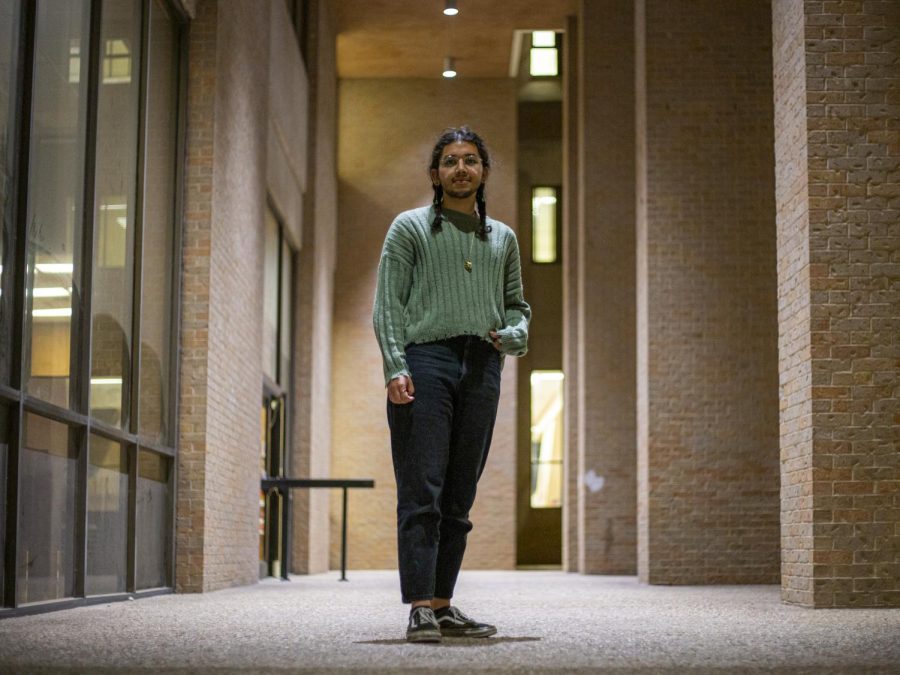LGBTQ+ community finds ways to move forward post-election
November 29, 2022
The day after the election, some members of UT’s LGBTQ+ community received an email from a professor, checking in on them after the “stress and struggle” of election night.
“We did get through this, together, and we are all still here in the spaces we’ve fought so hard to create,” Lisa Moore, director of the LGBTQ Studies program, said in the email.
Moore wrote the email in support of people who may experience the effects of the legislation that Gov. Greg Abbott, Lt. Gov. Dan Patrick and Attorney General Ken Paxton promised to support during the 2023 legislative session, such as opposition to healthcare for transgender youth and refusal for exceptions on the abortion ban.
Lawmakers have filed anti-LGBTQ+ bills, such as House Bill 122, which would criminalize gender-affirming healthcare. During the previous legislative session, representatives filed over 30 anti-LGBTQ+ bills, according to Equality Texas.
Kai Bovik, a math and sociology senior, said their attitude going into the election was “hope for the best but prepare for the worst.” This election held particular importance for them because of the recent targeting of transgender children.
“I transitioned before I was 18 and that impacted my life in such a positive way and probably saved my life,” Bovik said. “So many other kids aren’t even going to have access to that option.”
Michael Goodman, an assistant education professor and LGBTQ Studies faculty affiliate, said the targeting of queer communities made him “fearful” going into this election.
“I was fearful for the trans people in Texas and also the trans people of color and the queer people of color who feel and experience racism and sexism and homophobia or transphobia all at the same time,” Goodman said.
Jo Hsu, an assistant professor of rhetoric and writing and LGBTQ Studies faculty affiliate, said they appreciate the opportunity to work with queer students, but bearing the collective trauma of those around them can be overwhelming at times. They said fostering a strong sense of community provides space for mutual support in processing collective trauma.
“It’s been a challenge just in terms of feeling like I can do enough, … (like) I can create enough emotional space where everybody needs it and also taking care of myself in that time,” Hsu said. “What do you do when you go home wearing somebody else’s trauma?”
Texas has the fifth largest population of transgender people in the United States according to a 2016 report by the Williams Institute, so Hsu said when politicians spread rhetoric that there aren’t many transgender people in the state, this information is not only misleading, but also harmful.
“We live in a world designed to isolate LGBTQ folks,” Hsu said. “The more you can build community with others, … it works against that loneliness or isolation that is designed to make you feel disempowered.”
Moving forward, Bovik plans to focus on fostering a sense of community, particularly with organizations beyond the University. As the vice director of the Queer and Trans Student Alliance, Bovik hopes to continue to make the QTSA a space of community and resources while pushing for inclusivity around campus and connecting with organizations such as the Kind Clinic.
Goodman said in addition to supporting the community, students should take LGBTQ Studies classes, support the Gender and Sexuality Center and continue to vote.
“It’s easy to believe that an election ends and then we wait to see what happens, but it’s actually a commitment that we have to make every single year, … to bringing in people who are committed to getting justice for and space and care for trans and queer communities,” Goodman said.















